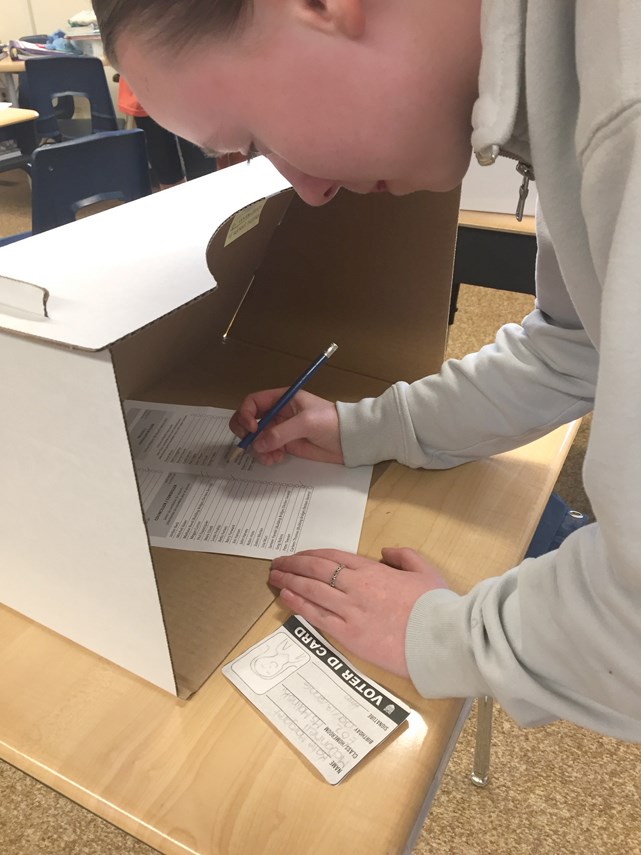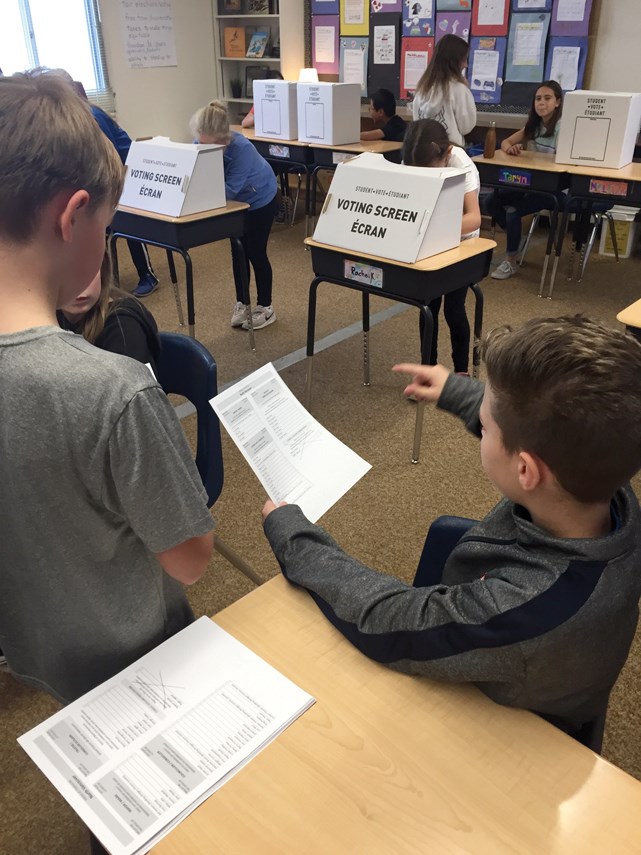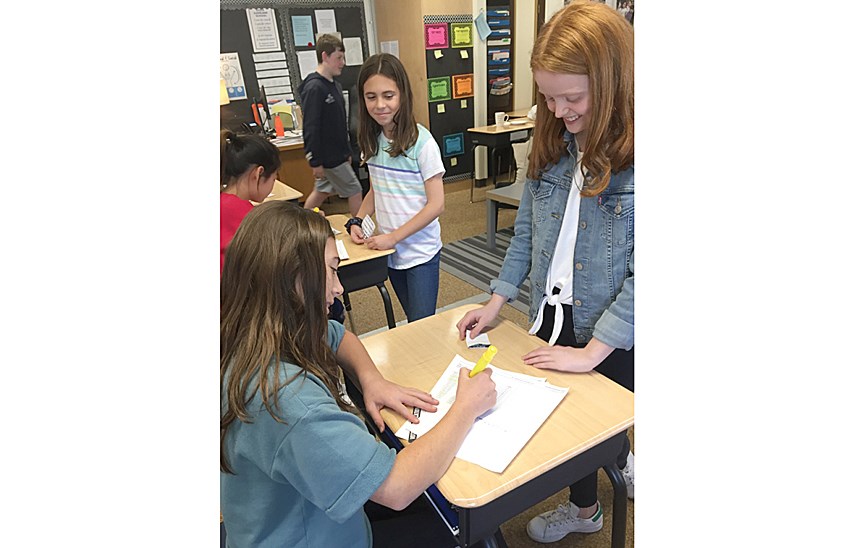The apple does not fall far from the tree when it comes to political decision-making in North and West Vancouver.
Results of a recent student vote project conducted in North and West Vancouver schools to encourage political engagement among young people showed candidates chosen in the students’ mock elections closely mirrored the real-life choices made by their parents.
Results weren’t exactly identical. But six of the seven council members chosen by students too young for actual voting in their City of North Vancouver mock election matched the adult choices made Oct. 20.
Students in North Vancouver also mock-elected five out of seven of the same candidates for school board that the adults did on Saturday.
Over in West Vancouver, students picked all but one of the same choices made by adult voters on both District of West Vancouver council and the board of education.
(In the District of North Vancouver, the student choices strayed a bit further from the real results, with only four of the seven council candidates who were elected chosen by the students.)
The close results aren’t so unusual, said Frédérique Dombrowski, spokeswoman for the non-partisan organization Civix, which organizes the student vote program.
Often the kids’ vote – which happens the day before the real election, with results released after the real election – does tend to mirror the conclusions adults come to in the voting booth.
The aim of the exercise is to get students under the voting age familiar with elections and knowledgeable about how to choose candidates, Dombrowski.
“We want to create the habit of voting before kids turn 18,” she added.
That’s because research shows one of the best indicators of whether someone will vote is whether they’ve voted in a previous election, said Dombrowksi.

The municipal mock election just held is the group’s 11th project in B.C., which co-ordinates the mock elections to coincide with real municipal, provincial and federal elections. Teachers who signed up received materials including ballot boxes and ballots, as well as materials to help them discuss the democratic process with their students.
In North Vancouver, 18 schools took part in the student vote.
In one Grade 5 class at Cleveland Elementary, students researched candidates and presented their research to the class. Candidate profiles were posted on the classroom wall and a number of the candidates came to speak to the students in person. On “voting day” one of the classrooms was turned into a mock polling station where students lined up to be checked off a class list and receive a ballot.
Clove Cliff also conducted a mock vote in the school library, with some students taking the role of election officials.
A similar process took place in some schools in West Vancouver, with classes at Ecole Pauline Johnson researching candidates’ platforms online then walking through the community to look at campaign signs and discuss how those affected their impression of the candidates before voting at a mock polling station.

More than 5,000 elementary and high school students took part in the student vote project on the North Shore.
Provincewide, 60,000 students mock-voted in 105 municipal elections across B.C. last week.
To see results of the student mock elections, go to: studentvote.ca/bclocal2018/results/



